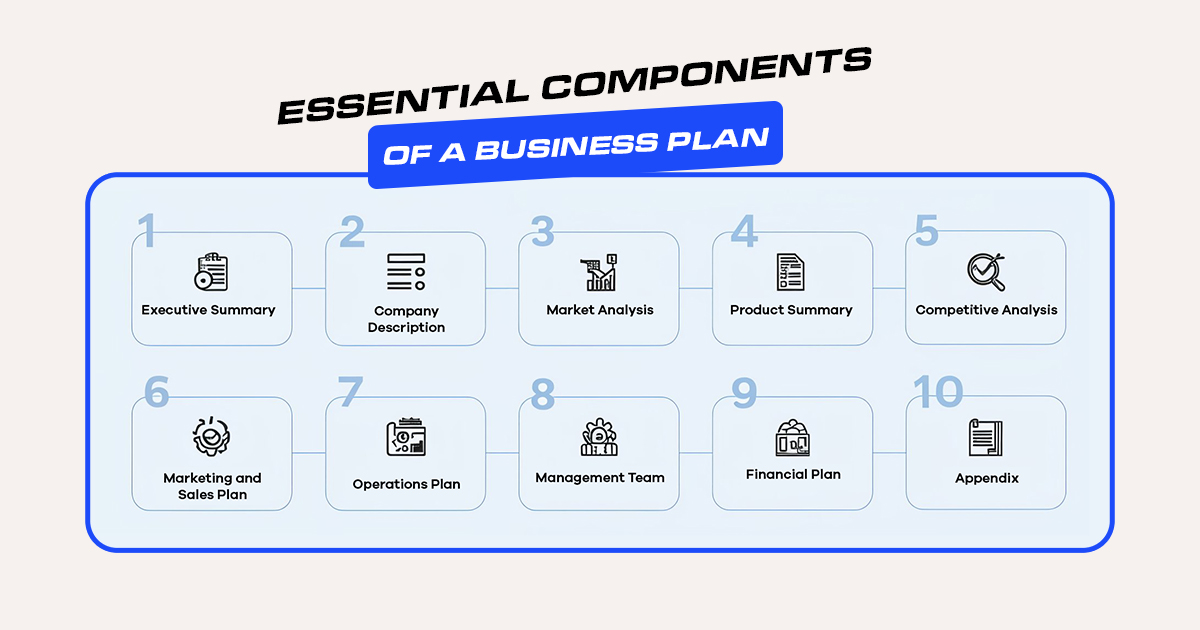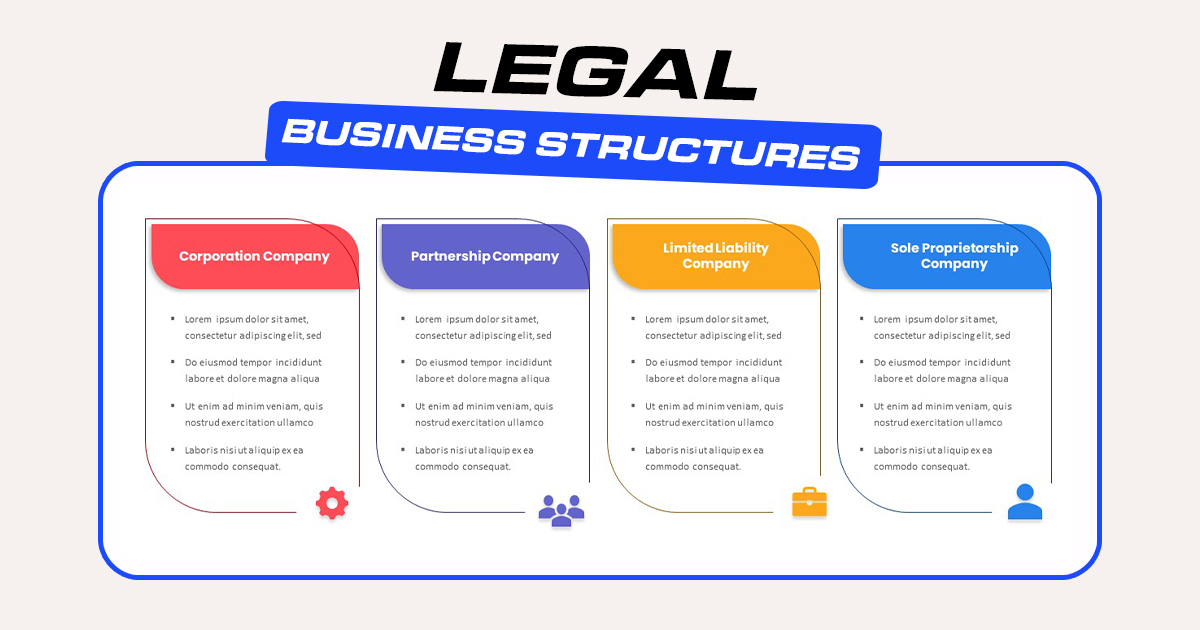
The most difficult part of a business is to start it, as this is the phase where you have multiple thoughts running at the back of your mind. During this phase, you are thinking of various things with continuous doubt about whether things will work or whether the business idea you plan to start will be worth it. However, comprehending some of the important steps will help you streamline the whole process and allow you to think of one aspect at a time to start your journey towards your business goals.
This guide discusses some of the reasons to start a business and provides you with different business ideas based on what interests you the most. It includes all the essential steps you need to take to start a business venture and answers all the questions that might come to your mind when you think about starting a business. Lastly, there are some important tips that you should remember to make your journey smooth, productive, and successful.

Although starting a business can feel overwhelming, and this process poses its own set of challenges at every step, it offers several benefits, too. Individuals have their own reasons for wanting to start a business. You need to weigh the advantages and disadvantages of any venture you are thinking of starting to make a well-informed decision.
As a business owner, you can enjoy financial stability by earning a considerable profit by selling your products or services. Business ownership also allows you to make decisions and pursue your dreams. This opportunity provides a chance to escape from your 9-to-5 job and achieve a sense of fulfilment as a result.

The following are some of the business ideas out of which you can choose anyone based on your skills and area of interest:
It is one of the great business ideas that requires low investment cost and allows you to sell products without managing inventory. To start this business, you must develop an e-commerce website and implement strategic marketing techniques to promote it.
You can start freelancing whether you are an artist, video editor, writer, or belong to any other profession. To work as a freelancer, you must create an impressive portfolio to attract potential clients and monetize your skills.
In this business, you can work with suppliers that ship the orders on your behalf after printing your designs on blank items, including mugs, T-shirts, etc. This business idea allows you to start your own online store.
This type of business allows you to sell your services or assist other people based on your areas of expertise. You can sell services such as event planning, personal training, tutoring, etc.
You can start a business selling handmade artwork, clothes, jewellery, or other decorative items by building an online store and promoting your products via different marketing platforms to attract a wider audience.
The following are the essential steps you need to follow for starting a business and ensuring it operates smoothly with guaranteed growth and success in the future:
First, you need to have a business idea, which might already have been running in your mind for a long time. While thinking of an idea for your business, you should analyze your expertise, skills, and interests. Doing what you like helps you ensure continuous dedication and motivation throughout your journey.
Different business ideas exist, and each has its own pros, cons, and unique requirements, including financial investment and associated risks or innovative techniques. You need to weigh all the advantages and disadvantages to refine your business idea while being realistic about your business objectives.
You need to conduct in-depth market research to understand the requirements and preferences of your targeted audience. This will help you identify market gaps and introduce something new that solves consumers’ problems. This information will also help you offer customized products or services that fulfil consumers’ unique needs while ensuring your business’ success with fewer risks.
Once you have refined your business idea and finalized the product or service you want to launch, the next step is to think of a name for your business entity. You need to think of a catchy name that leaves a strong impression on clients’ minds and keeps them remembering it for longer. Your business name should also be scalable to stay relevant if you plan to expand to new locations and introduce more products or services.
You should consider more than one name for your business to have backup options if the first business name you have thought of is registered or trademarked by someone else. Additionally, since you will have to build a website for your business, you must also ensure that the domain name for your desired business name is available.
A well-organized and properly formulated plan is one of the most crucial necessities for your business’s starting point. A business plan is an essential document providing a roadmap for structuring, operating, and managing your business. This roadmap helps attract investors, gain banks’ trust for financial purposes, and estimate the upfront cost for your business.
The legal structure you will choose for your business will be decided depending on several aspects, which include the amount of personal liability you want to possess, tax regulations, and requirements for business registration. A sole proprietorship comes with the most personal liability, but filing this business is the easiest of all. On the other hand, heavy tax payments and reduced personal liabilities are a part of LLCs.
The lack of finances at the start or running out of cash in the initial stages of your business setup can lead to the failure of startups. To avoid failure, you must have enough capital and a continuous cash flow that helps keep your business running smoothly. Therefore, you need to get in touch with potential investors or apply for grants and loans to gather sufficient capital for your business.
Before introducing your business to the customers, you must complete all formal and legal paperwork. In the U.S., the steps you must take to register your business name are based on your location and business structure. By registering your business, you can enjoy several benefits in terms of legal and trademark protection, liability protection, and tax benefits. All the advantages are necessary for the growth and welfare of your entrepreneurial startup.
When you register your business in the UK, you must have your federal and State tax ID numbers, referred to as the EIN (Employer Identification Number). In this way, the Government recognizes your business for tax payments at the federal and State levels. A tax ID number is also needed to hire employees, open a bank account, and apply for relevant business licenses and permits.
You should check your local government site to know the licenses and permits you need to apply for based on the type of business you will start. Moreover, it is also important to comprehend which IRS forms are relevant for your business, corporate tax payment, income statement, income tax audit process, and tax return process.
Insurance is critical for protecting your business from unanticipated risks and financial liabilities. It acts as a safety net for your business that shields your assets and allows running your business smoothly in case of accidents, lawsuits, or other unforeseen happenings. To apply for an insurance policy, you need to consider the type of your business and know the potential risks, such as hazards, product or service liability, and possible lawsuits. You also need to get detailed information about the coverage types that suit your business requirements, including casualty or property insurance, general liability, professional liability, etc.
Finances are one of the most important elements that keep a business running. To ensure smooth business operations, it is significant to have extensive finances that are well-organized and properly allocated to be spent on each segment of your business. You should also have a business bank account to separate your finances from your financial account. Moreover, it is also important to handle the accounting for your business expertly and efficiently with regular audits to keep everything a part of your record.
You need properly formulated documents highlighting your business’s operating conditions, including an operating agreement, partnership agreement, etc. These documents are essential for defining your business’s decision-making process, management structure, and operational procedures.
You can personalize these documents based on your business’s nature and needs and review them regularly as your business grows and advances over time. Additionally, you can also consult with a business lawyer to draft these documents comprehensively while guaranteeing compliance with all the relevant legal rules and regulations.
Building a brand is the key to developing your business’s identity in the corporate sector. To create a brand everyone trusts, you need a consistent voice, a set of values, and a visual identity. This includes everything from brand colors to company ethos to logo, personality, story, etc.
To start and run a business, it is essential to design a professional-looking website with a highly responsive design and attractive visual elements. Your website will be the first thing viewed by prospective customers, investors, and shareholders, attracting them to avail of your products or services, invest in your business, or sign a partnership with you. In short, with a professionally designed website, you can create a positive impression on everyone who visits it.
After developing your website, you should devise an effective marketing strategy to promote your business’s visibility and guarantee its growth. A well-formulated marketing plan will help attract and sustain more customers for your business. For your marketing venture, you must consistently build a cohesive brand identity based on credibility and trust.
When you start your business, you can be a one-man army, but as your business expands and your workload increases, you need to add more members to make a team that helps manage different responsibilities and tasks effectively. Based on the nature of your business, your preferences, business requirements, and your budget, you can choose to hire in-house staff or add freelancers or independent contractors to your team.

You can follow these steps to refine your business idea:
To understand consumer behaviour, you need to conduct primary and secondary research and undertake a SWOT analysis:
This type of research involves comprehensive research of the targeted market using focus groups or user interviews. It helps you identify your potential customers and discover user demographics based on their age, language, location, spending power, etc.
Secondary research constitutes consulting external sources, such as the U.S. Bureau of Labor Statistics, to gather essential information. Moreover, you can also analyze your sales reports to check the consumer buying trend.
With the help of information gathered after primary and secondary research, you can do a SWOT analysis to analyze where your business stands among the competitors. An effective SWOT analysis involves the following steps:

The following are some of the important components that should be a part of your business plan:
In this section, you should provide an overview of your business proposal so that your investors and potential clients have a quick idea of your offerings.
You must include the name of your company and founders, business operating locations, and mission statement. Your mission statement should highlight your goals and core values and guarantee that you will provide quality services or products to all clients.
Include insights regarding the growth and trends of other small businesses operating in your industry, thinking about the scope of your industry and its potential to evolve over time. You should also include the strong and weak points of your competitors in this section of your business plan.
In your business plan, you need to mention the details of your targeted audience and the methods for reaching them. You also need to specify the customer requirements and state how your product or service is relevant to fulfilling those specific needs.
You should provide details regarding your business’s organization and leadership while mentioning the board members, employees, executives, founders, and stakeholders. To represent this information more effectively, you can make an organizational chart that helps you comprehend the details easily.
Provide a detailed list of your existing and new products or services that you plan to launch in the future. You can also provide a POC (Proof of Concept) or a concept statement if you have not yet finalized the products or services you will be offering. It reflects the viability of your business idea.
Give an idea of how you will bring sales for your business by explaining all the strategies and tactics you will be using for marketing in the form of advertising, digital marketing, promotions, etc. You will also have to elaborate on the distribution channels, pricing, and customer touchpoints, such as mobile applications, physical or online stores, websites, etc, from where consumers can purchase or avail of your products or services.
You need to provide an estimate regarding the amount of money that will flow into your business, or you can also share the data or your initial sales. Financial projections are important as investors want to see the exact number to justify whether the risk they will take will be worth it. Based on the market trends, you should include the anticipated break-even point, expected accounts receivable, estimated cash flow, expenses, overhead costs, sales forecast, sunk costs, and estimated profits or losses.
The last part of this crucial document is an action plan outlining the contributions and responsibilities of all team members who will help you achieve your business targets. Your operational plan can also provide a timeline and the goals you want to accomplish in the upcoming time.

In the U.S, the following are the most common types of business structures:
A cooperative business is an entity run by its members for their mutual benefit. In a cooperative business structure, all the members have specific roles and work together to make informed decisions. All the members share the profits and responsibilities, and everyone should agree to a common point that favors their business’s mission.
This legal business entity has nothing to do with the owners, and liabilities are incurred in its own name. Corporations have to pay corporate income tax on profits, and the company’s debts are not the personal liability of its shareholders. If the shareholders get dividends from the corporation, they must pay individual income tax on those amounts. Corporations can be C-corps or S-corps. Corporations have complex recordkeeping and reporting requirements based on the State where you start this venture, and it is an ideal choice for businesses who want to raise capital, issue stock, or scale at a larger level.
A franchise implements a proven model and operates under a well-established brand. This business structure is more reliable as it comes with ongoing royalties, but a significant upfront cost is required to start this venture. The rules and systems set by the franchisor are to be followed by the franchisees. Thus, you need to comprehend the contractual terms fully, the level of support offered by the franchisor brand, and any limitations before committing.
LLCs allow for partnership flexibility and provide limited liability protection for a corporation. An LLC can pay taxes as a pass-through entity when the profits or losses are passed through to the owners, and they pay individual tax returns. On the other hand, an LLC can also opt to be taxed as a corporation. If an LLC cannot pay its debts or does not ensure compliance with the relevant obligations, then business assets are at risk in case of a lawsuit. Thus, the flexibility and limited liability associated with LLCs make them one of the most popular choices for various small businesses.
Non-profit organizations are responsible for serving charitable, educational, or social missions, and their goal is not to make profits. These organizations are mission-driven and get tax exemption upon registering with the IRS. Fundraising and grants are essential for these organizations as all the profits are again used for the mission. For their ultimate success, these business owners must stay well-organized and ensure compliance with non-profit laws.
In this type of business structure, two or more persons share ownership, responsibilities, and profits or losses. The partners gain the profits and losses, which are individually reported on everyone’s tax returns. Every partner is responsible for fulfilling the partnership’s obligations, and every person is accountable for their debt. In this business entity, the partners share the business’ management and its profits or losses, but there is no protection against liability for internal disputes, misconduct, or negligence of their partners.
A single person owns this business and is responsible for fulfilling all the legal requirements. The individual’s personal income tax return reports the business’s profits and losses, and the owner is liable to pay all the debts and deal with associated legal problems that could arise at any time. This type of business is suitable for an individual or a couple that does not have employees or contracts with landlords, subcontractors, or suppliers.
There are different methods to gather capital for your business, such as:
This method involves funding your business by dipping into your personal finances. It allows you to have greater control over all aspects of your business, but growth can be slower if you do not have sufficient finances, which can be a risk for your startup.
Implementing this technique allows you to share your thoughts on a wider scale using different platforms, get feedback from various individuals and groups, and raise money. However, before selecting any crowdfunding site, you need to analyze the fees, terms and conditions, and the type of audience.
One of the greatest benefits of utilizing grant money is that you do not have to pay it back. You can explore the grants for community organizations on the U.S. Small Business Administration website or check with private institutions to get grants for your small business.
Credit cards are one of the most viable options for funding a new business if used responsibly. You can get a business credit card to fund your business. Choose a credit card with a 0% introductory APR period and a rewards structure through which you can earn cash back, credit statements, or miles. It will also help build your business’s credit score if you make timely payments and keep a credit utilization rate under 30%.
Small businesses can apply to get loans from banks and other financial organizations via their FAQ services. For this purpose, you must estimate your funding requirements and solid reasons to demonstrate clearly. You can use the financial projections mentioned in your business plan to analyze the type of loan you require for your business.
It is a flexible loan that behaves like a credit card and lets you borrow and repay funds according to your requirements. For business LOCs, there is a requirement for annual income and time in business, but new business owners can apply if they are willing to put up collateral and have an impressive personal credit score of over 670.
Angel investors can be found through mutual contacts or family members. Several active high-net-worth persons invest their money in startups during the early stages of business establishment, allowing you to obtain significant capital for your business venture.

Business owners should pay taxes, and they may be subjected to pay these different types of taxes based on their business activities, industry, and location:
Certain goods in specific industries are subjected to pay excise taxes, such as alcohol, fuel, tobacco, or other regulated items. These taxes are usually a part of the product’s total price, and the distributors, importers, and manufacturers must pay them.
You must collect and remit sales tax if you sell goods or services to consumers in a specific jurisdiction. The tax rate and other regulations are decided by your business’s operating location and the type of service or product being sold.
Beyond sales tax, there can be extra state and local taxes based on the location of your business. These taxes include business privilege taxes, city-specific taxes, local business license fees, and property taxes.
You must pay international taxes and associated fees if your company offers products or services internationally. U.S. businesses operating overseas or foreign companies operating from the U.S. must check for double taxation liabilities. International taxes may include customs duties, GST (Goods and Services Tax), VAT (Value-Added Tax), or tariffs.

The following are some of the common types of insurance that a business owner might consider based on the nature of the business:
This insurance covers claims that arise after an injury or property damage that might be caused by a poor-quality product sold by your business.
It is also named as errors and omissions insurance. This insurance policy protects against claims related to errors or omissions and professional negligence that may result from providing professional advice or services.
This insurance policy covers the business’s physical assets, including the building, equipment, furniture items, and inventory. It provides coverage against potential damages or losses that might occur due to fire, natural disasters, or theft.
If a covered event, such as a fire or a natural disaster, interrupts your business operations, this insurance compensates for lost income and ongoing expenses.
This insurance policy covers all claims related to problems that result from different employment practices, such as discrimination, harassment, or wrongful termination.
This insurance covers third-party bodily injuries, property damages, and other legal costs that might result in an accident on your business premises or because of your product or service.
This insurance is mandatory in certain States of the U.S. if your company has hired employees. With this insurance, you offer coverage for medical expenses and lost wages to employees suffering from work-related illness or injury.

There are two most important methods through which you can easily manage your business finances and keep them organized:
Every business should have a bank account to distinguish between your business and personal finances. You will need some important documents to open a bank account for your business, such as business registration paperwork, EIN (Employer Identification Number), or SSN (Social Security Number). Additionally, you should assess that the particular bank in which you will open your business bank account can fulfil your business needs and get complete information about the account fees, access to credit options, transaction limits, etc.
Having a business bank account helps maintain a precise and accurate record of your finances while keeping track of all your income. You can also easily assess your expenses, profits, and losses, simplifying financial reporting and tax preparation. With a business bank account, you can also apply for a business loan or line of credit in the hour of need. It also proves your business’s credibility to customers and investors by depicting a professional approach to managing your finances.
You should implement an efficient bookkeeping system for your business to handle payroll, manage invoices, pay taxes, and track your expenses on a daily basis. For this purpose, you can either invest in an accounting application or software or hire a CPA (Certified Public Accountant) to manage your business’s bookkeeping.

The following are some of the important elements on which you need to focus for your business’s branding in a unique and attractive way that gets noticed by everyone and leaves a long-lasting impression on your customers’ minds:
Colors are important in grabbing customers’ attention by creating a long-lasting visual impression. The color scheme of your company logo should reflect your business’s personality and evoke the desired emotions of customers.
A properly designed logo that reflects professionalism is one of the most crucial visual elements for your business’s branding. Your company logo should be unique, attractive, and memorable. You can either hire a professional graphic designer to design a logo for your company or design it yourself if you have the expertise.
Select the graphics, images, or illustrative elements for your brand carefully. These should represent your business and give an overview of your products or services.
You should select a font style and size that is easily readable and matches your brand’s tone.
You should select or create a customized icon or symbol that can be used consistently with all your products or services and reflects your brand’s unique identity.
A website is crucial for every type of business in the modern world, and you should ensure efficient integration of your brand’s visuals with a coherent color scheme. Your website design should also include banners and buttons that help customers contact your customer service anytime.
You can get your brand visuals printed on personalized brochures, business cards, or packaging materials, which will help you retain a unique identity.
Presenting your brand’s story can create an authentic and engaging narrative for your potential customers and investors. Your brand’s story will tell people about the purpose for which you have built a particular brand, your journey, business values, and the strategies you implement to evolve your products or services continuously. It will help you connect emotionally with your audience, building their trust in your brand.
A consistent brand tone and voice can reflect your communication style and personality and help build a strong relationship with clients, potentially leading to increased sales. To create a consistent voice, you need to identify your target audience and deliver your message in a language that resonates with them. After setting the brand voice, you must develop strategies to communicate it with your audience, such as through emails, phone calls, promotional messages, etc.
To build a professional website for your business, you need to follow these steps:
There are different website templates for various types of businesses that can be easily incorporated into your website. You can use a suitable website template and customize it according to your requirements to reflect your brand’s unique identity. To add a personalized touch to the website template, you can change the color scheme and add visual elements that are consistent with your brand’s identity.
Once you have selected a suitable template for your business website, you need to consider the tools and other integrations that should be part of it and help you run your business smoothly and efficiently.
After customizing the website template, you must choose a web hosting provider. A web hosting provider is an essential tool that helps store your website’s files so they can be viewed online. Next, you have to connect a registered domain name to a hosting server, and this name will be used specifically for your business.

Implementing different SEO strategies can optimize your business website. These techniques can optimize your website’s content to help improve its ranking against specific keywords. When your website’s ranking improves, it becomes visible to more people, and the potential for conversions or sales via your website increases.
You need to conduct keyword research to optimize your website’s SEO. For this purpose, you can use tools like Ahrefs, Google Keyword Planner, SEMrush, etc. An efficient SEO strategy consists of the following elements:
Technical SEO is dedicated to efficiently managing your website’s core elements, hierarchy, navigation, speed, and overall structure. It helps make your business website responsive, quick-loading, and easy for search engines to crawl. However, you should also avoid adding dead links, duplicate content, and media files with a slow loading rate, as these can negatively impact the user experience.
Your website should be individually optimized using targeted keywords. The primary keyword should naturally appear in the page title, meta description, headings, and overall content.
Your focus should be creating engaging, high-quality content, providing useful information to visitors, and resolving their queries efficiently. For instance, if you have written Blogs, those should be covered comprehensively with engaging words and informative details that attract visitors and retain them on your site for a longer time. When users spend more time on your website, the search engines get a signal regarding the relevance of your content based on its intent.
You should ensure your business website’s design is mobile-friendly and responsive. Mobile optimization is necessary to provide a positive user experience
with increased mobile users.
If your business serves a local audience, use local SEO strategies. You should claim and optimize your Google My Business Listing and ensure all web pages contain consistent information regarding your company’s name, address, and contact number. Your website should also offer customer reviews to get feedback and improve the quality of your products or services based on user experience.

The following are some of the proven marketing strategies that can bring guaranteed results, and you can choose any of these practices based on business requirements and your budget:
You can target a vast audience of customers by advertising your business and providing results to users who actively search for products or services relevant to the industry in which you operate your business. Google Ads is very popular for paid advertising. They allow users to bid on relevant keywords and ensure their business ads are prominent in the appropriate search engine results.
Marketing your products or services via different social media platforms helps you reach a diverse audience. You can choose to market your products or services and ensure an active presence on a specific platform that your targeted audience uses mostly.
You can promote your business and build engagement on your website with the help of email marketing. This marketing strategy helps you reach out to customers directly by creating a loyalty program and customizing your messages according to the individual interests of every client you are targeting via your email marketing campaign.
You should craft and share relevant and valuable content for your targeted audience to grab their attention and keep them engaged with your business activities. You can choose to publish blogs on your website, create podcasts, or create a YouTube channel because there are endless possibilities when creating content related to your business. Moreover, you can share updated facts and figures about your company and provide industry-related news to build strong connections with prospective clients.
Positive word of mouth can help build a positive reputation for your brand, boost your credibility, build trust, enhance customer loyalty, and acquire customers. It is one of the most cost-effective strategies that can considerably influence your marketing and help you reach a vast audience to promote the organic growth of your business.
You can undertake different methods and utilize various platforms for hiring employees and making a team for your business, such as:
Different colleges and universities have career centers; you can contact them to get information about talented or recently graduated students. After getting detailed information, you can contact potentially talented students whose expertise and skills match your job requirements and provide them with the employment opportunity they seek.
If you are seeking freelancers to handle different tasks of your business remotely, then you can explore various freelance platforms, such as Fiverr, Freelancer, Upwork, etc. These platforms provide you access to freelancers with specialized skills for handling specific tasks and working on different projects.
As a business owner, you should explore and join different online forums or social media groups that are specifically created for your business-related industry. These platforms can help you access talented individuals whom you can hire for your company.
There are different local job boards or websites for other communities where you can post job openings for your business. In this way, you can also hire employees from the local area.
You should attend different networking events or job fairs that are specifically related to the industry in which you are operating your business. By attending these job fairs or events, you get to meet potentially talented candidates, offer job opportunities to them, and hire employees for your company who fulfil your requirements.
To find expert members for your team, you can post job offers on different online job platforms, such as Glassdoor, Indeed, LinkedIn, etc. You can hire employees based on your required expertise and experience to efficiently handle other business tasks.
You can publish posts regarding job openings in your company or run ads on different social media platforms, such as Facebook, Instagram, X, etc. This will help you reach a vast audience and connect with job-seeking individuals.
Based on the nature and unique requirements of your business, you need to craft these documents:
Bylaws are required if you are going to form a corporation to outline the corporation’s operational method and the responsibilities of directors and officers. This document is essential as it also provides information regarding arranging meetings, getting votes regarding different business decisions, and ways to deal with other corporate governance matters.
If you are going to hire employees for your business, you need to have an employee handbook regardless of your business’s structure. This document entails all the crucial information that your employees want to know, ensuring equality while dealing with all the workforce matters. You can mention details regarding different company policies, salary and promotions, vacation and sick leave, work schedules, etc.
An operating agreement is relevant to LLCs. This document includes details regarding the ownership and roles of different members of an LLC. It also provides information about the division of profits or losses and other business operational procedures. This document helps distinguish between the owner’s personal and business assets.
If you operate a partnership business, you should have a partnership agreement signed by all the partners. This document includes details regarding the decision-making process, dispute resolution procedure, and distribution of profits or losses. It should also entail details regarding the process to follow if any partners want to end the business partnership or what to do if a partner dies. Having this business document is crucial and proves helpful in preventing potential disputes or misunderstandings in the future.
This document can include information related to various aspects of your business, including billing and collections, customer services, product returns, etc. These manuals can ensure a consistent and efficient workflow.

You can follow these steps to get in touch with the relevant individuals, simplify the overall process, and hire the best employees for your team:
You should assess the roles for which you need to hire employees who will work for your company. To decide on this, you can identify the tasks for which you require assistance to complete them. Your requirements and the need to hire individuals with diverse backgrounds will be an ongoing practice as your business evolves.
You need to prepare detailed job descriptions for all the roles in which you will specify the roles and responsibilities of a particular individual. It will also include the details of required experience, skills, working hours, and all the essential information needed to hire an employee for a particular role. A good job description helps potential employees know what to expect and allows you to attract suitable candidates for a specific job.
To decide on compensation for every job role, you can conduct market research to comprehend the competitive salary ranges. You must decide on all compensation components, such as base salary, bonus, benefits, and equity or stock options. It is important to stay honest and clear about compensation so the employees set the right expectations.
Different channels, such as online job platforms, job boards, social media, etc., can be used to target potential employees. You must identify your target candidates and select the most effective channels to reach them. Moreover, you can also invest in an ATS (Applicant Tracking System) to manage job applications and simplify the hiring process.
You must evaluate individuals ‘ expertise and skills before hiring individuals for different job roles. You can assess the experience and potential of various candidates by conducting multiple rounds of interviews, undertaking skill evaluations, or assigning them trial projects. You should follow consistent practices for evaluating and assessing candidates to ensure fairness in every process.
After finding a suitable candidate, give them a formal job offer letter. If the candidates accept the offer letter, plan the onboarding process to assist the individual in acclimating to his new job role. You can properly train the newly hired person, introduce your business culture and operating mechanisms, and familiarize them with essential administrative tasks, including HR paperwork.

Starting a business requires considerable hard work and time to tackle all challenges proficiently.
There are several opportunities and challenges in the life of a business owner, and a strategic business owner knows the right time to take advantage of any opportunity and how to tackle different challenges in the most suitable way. A properly formulated approach and a clear comprehension are required to start and run a business smoothly and with guaranteed success. It may seem daunting to start a business at first, but when each aspect is broken down into actionable and well-defined steps, then it becomes easy to fulfil all the requirements.
You should do proper homework and be well-prepared before launching any product or service for your business to lay a solid foundation that helps convert your business ideas into reality.
Ask our experts about your concerns and queries, and we will gladly help.
There is no perfect time to start a business; some people start their business at a young age and some start it later. Once you have a solid business idea and you have understood the needs of your audience, then you can start a business and work for it with full dedication.
To start a business, you need a realistic idea, clear comprehension of target market trends, properly formulated business plan, funds, licenses, legal registration, brand identity, online presence, and a highly motivated team who handle every responsibility with due care.
The amount of money you will to start a business can be decided based on multiple factors, such as the type and nature of your business, targeted industry, location, and operational scale. Having more capital in the start can help you lay a stronger base for your business and you can launch large-scale operation. However, if you have limited amount of investment in the start, then you should start at a small scale and then upgrade your business’s scale of operation.
You can use your personal savings, borrow money from family or friends, apply for small business loans, or explore options such as crowdfunding or working with startup incubators to fund your business in the start. To get money from any source, you need to have a detailed business plan and an attractive pitch that help persuade investors or lenders.
It is not necessary to have a degree for starting a business. You can start this venture if you have a viable plan, knowledge, and relevant expertise to build a thriving business with guaranteed success. You will gain relevant knowledge over time through mentorship, networking, practical experiences, and professional growth. However, you should be highly determined and flexible to start and own a business.
Although it can be challenging but it is not impossible to start a business without money. You can start a service-based business or an online business as it requires limited amount of investment. You can build your online presence on social media and make partnerships to develop a network and validate the quality of your services.
As a teenager, you can provide services such as babysitting, car washing, pet sitting, tutoring, etc or any other service that is of your interest to gain practical experience and learn essential skills. On the other hand, students can work as academic writers, tutors, or run an e-commerce business to earn money and learn valuable skills.
The decision of developing a physical store for your online business can be made based on various factors, such as brand’s image, competitor’s analysis, customer preferences, growth potential, local regulations, overhead expenses, startup cost, target market, type of business, etc.
Starting a business as a digital nomad has its own pros and cons. You can enjoy location flexibility and operate your business from anywhere with lower overhead costs, networking opportunities around the globe, and a potential for work-life balance. However, operating an online business can become challenging in due to difference in time zone, inconsistent internet connectivity, lack of stable work environment, legal and tax complexities, etc.